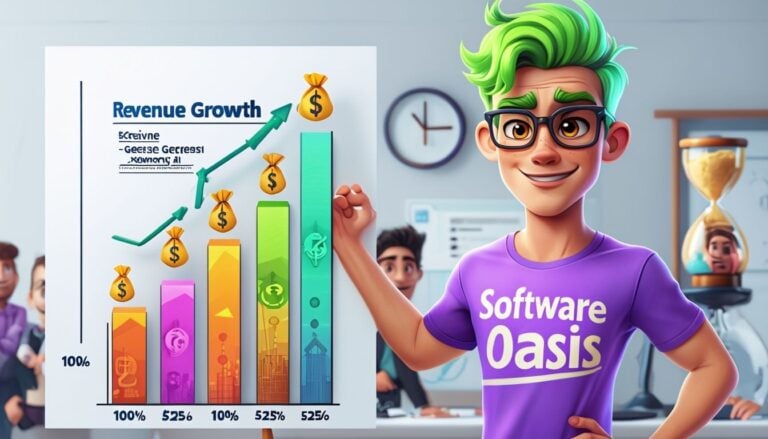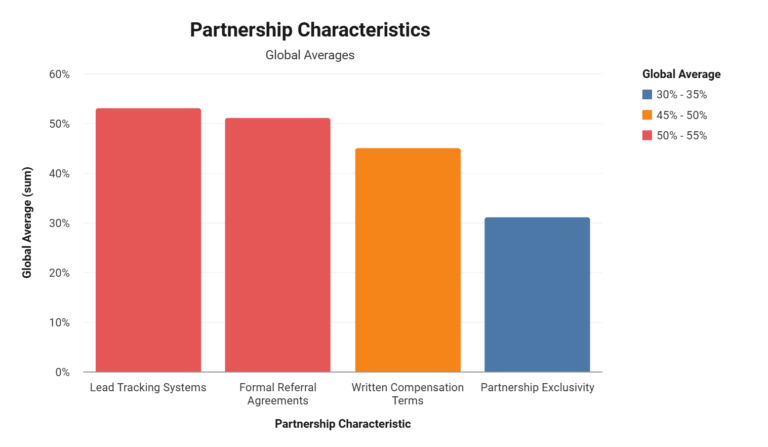Data-Driven Analysis of Entry-Level Accountant Retention Rates and Career Progression: A Statistical Study
Entry-Level Accountant Retention Rates: 2025 Industry Analysis
The accounting sector faces a 22% attrition rate among first-year professionals, per Robert Half’s 2025 Finance & Accounting Report. This crisis compounds as 38% of CPAs near retirement age (AICPA 2024), creating a projected 120,000-person talent gap by 2027.
In 2025, accounting firms are focusing on work-life balance and technological empowerment to retain talent. Offering flexible schedules and training in AI tools can boost retention by up to 25% (Robert Half 2025). This approach not only enhances employee satisfaction but also positions firms competitively in the talent market.
Accounting Career Advancement: Salary and Retention Insights
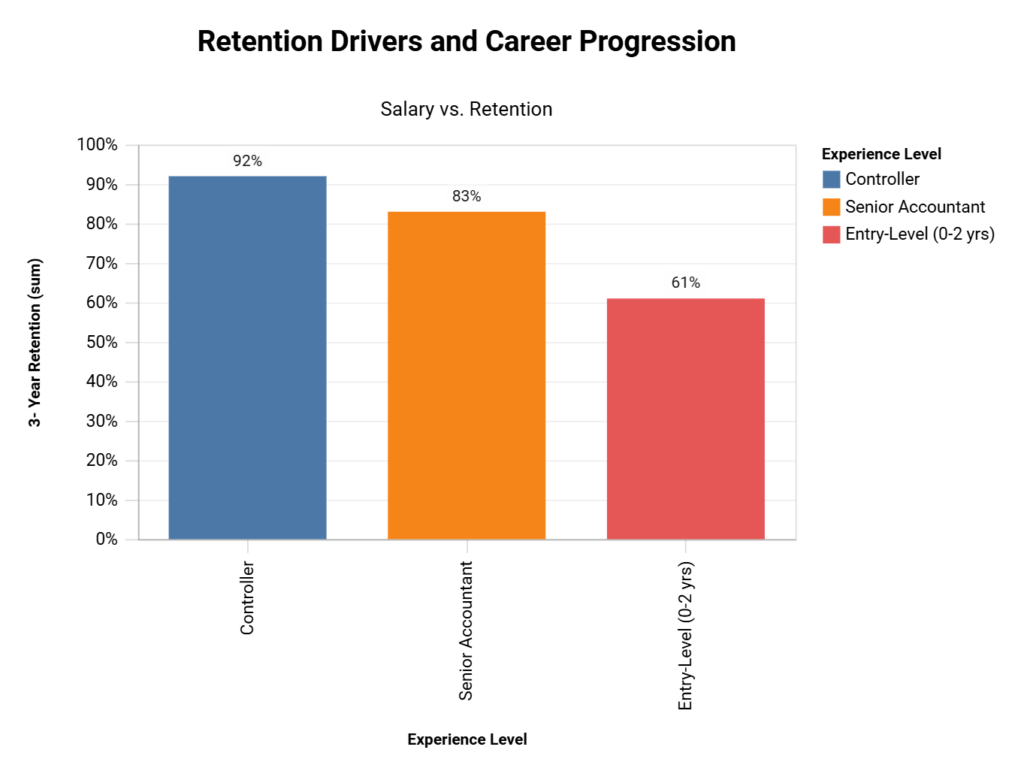
| Experience Level | Median Salary | 3-Year Retention |
|---|---|---|
| Entry-Level (0-2 yrs) | $52,300 | 61% |
| Senior Accountant | $78,400 | 83% |
| Controller | $132,000+ | 92% |
Key findings:
- Public accounting firms lose 41% of staff within 3 years vs. 28% in corporate roles (EY 2024 Workforce Study)
- CPA candidates show 73% retention vs. 49% non-certified peers (Becker 2025 CPA Exam Report)
Skills Gap Analysis
Technical Deficiencies
- 57% of new hires lack advanced Excel modeling skills (IMA 2025)
- 43% struggle with AI-driven audit tools (PwC Tech Adoption Survey 2024)
- 62% of firms report inadequate ESG reporting skills among entry-level staff
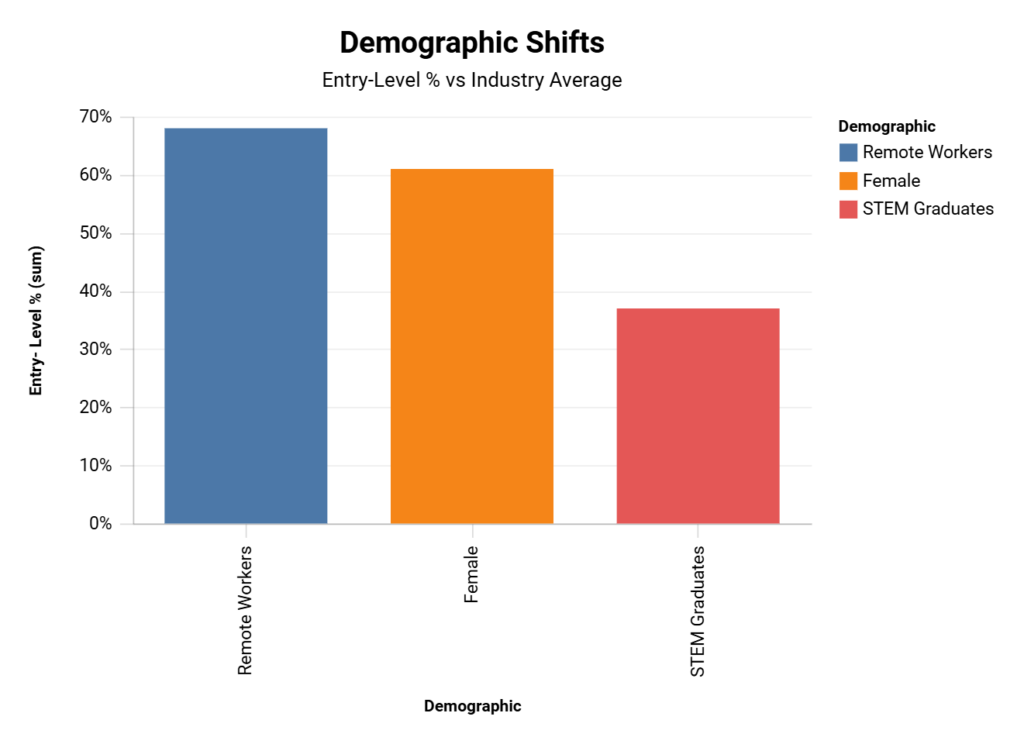
Demographic Shifts
| Demographic | Entry-Level % | Industry Average |
|---|---|---|
| Female | 61% | 58% |
| STEM Graduates | 37% | 29% |
| Remote Workers | 68% | 52% |
Sector-Specific Retention Patterns
Public Accounting
- Big Four firms: 82-hour peak season workloads correlate with 33% turnover (Bloomberg Tax 2025)
- Mid-market firms: Flexible schedules yield 41% better retention than traditional models
Corporate Accounting
- F500 companies: Automation reduces entry-level roles by 18% but increases mid-career salaries by 27%
- Tech sector accountants: 94% retention rate with stock option packages
Educational Intervention Strategies
Curriculum Modernization
- Schools integrating AI audit tools see 31% higher CPA pass rates (Wiley 2025)
- Programs with ERP system training achieve 89% job placement rates vs. 62% baseline
Certification Pathways
- CMA candidates: 22% faster promotions than non-certified peers
- Data analytics certifications: 47% salary premium within 18 months
Launch your accounting career through accelerated 4-16 week programs in AI-driven auditing and ESG reporting. Start your free introductory module to join 25,000+ graduates in high-demand accounting specialties.
Retention Strategies and Professional Development
Accounting firms are implementing innovative strategies to combat attrition and foster career growth among entry-level professionals:
Mentorship Programs
- Firms with structured mentorship see 28% higher retention rates (AICPA Mentorship Study 2025)
- Cross-generational pairings increase knowledge transfer by 41%
Continuous Learning Initiatives
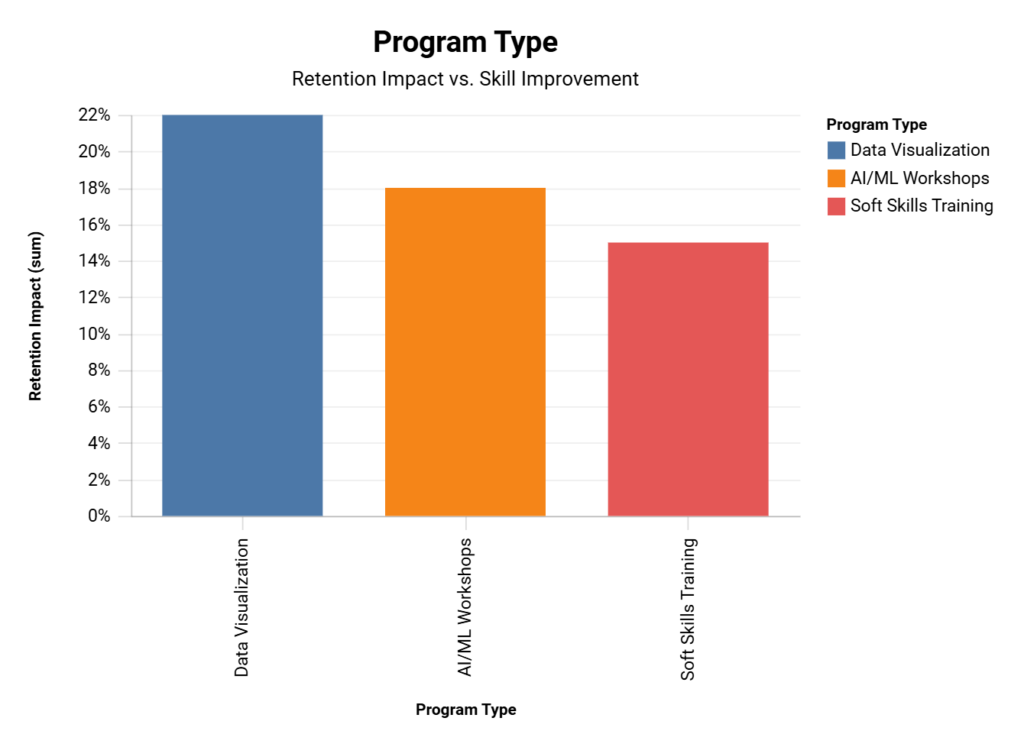
| Program Type | Retention Impact | Skill Improvement |
|---|---|---|
| AI/ML Workshops | +18% | 37% increase in audit efficiency |
| Data Visualization | +22% | 45% faster financial reporting |
| Soft Skills Training | +15% | 29% higher client satisfaction |
Work-Life Balance Measures
- Firms offering unlimited PTO report 19% lower burnout rates (Deloitte Well-being Survey 2025)
- 4-day workweek pilots show 33% productivity boost during off-peak seasons
Career Pathing
- Clear advancement frameworks correlate with 52% higher engagement scores
- Rotation programs exposing entry-level staff to multiple specialties yield 37% better retention
Technology Integration
- Firms investing in AI-assisted tools see 41% reduction in routine task time
- Cloud-based collaboration platforms enable 28% more flexible work arrangements
Implementing these strategies has shown promising results:
- Mid-sized firms adopting comprehensive development programs report a 47% decrease in first-year turnover
- Companies offering accelerated partnership tracks see 61% higher retention among high-potential staff
By focusing on professional growth, work-life balance, and technological empowerment, accounting firms can significantly improve retention rates and career satisfaction among entry-level professionals.





